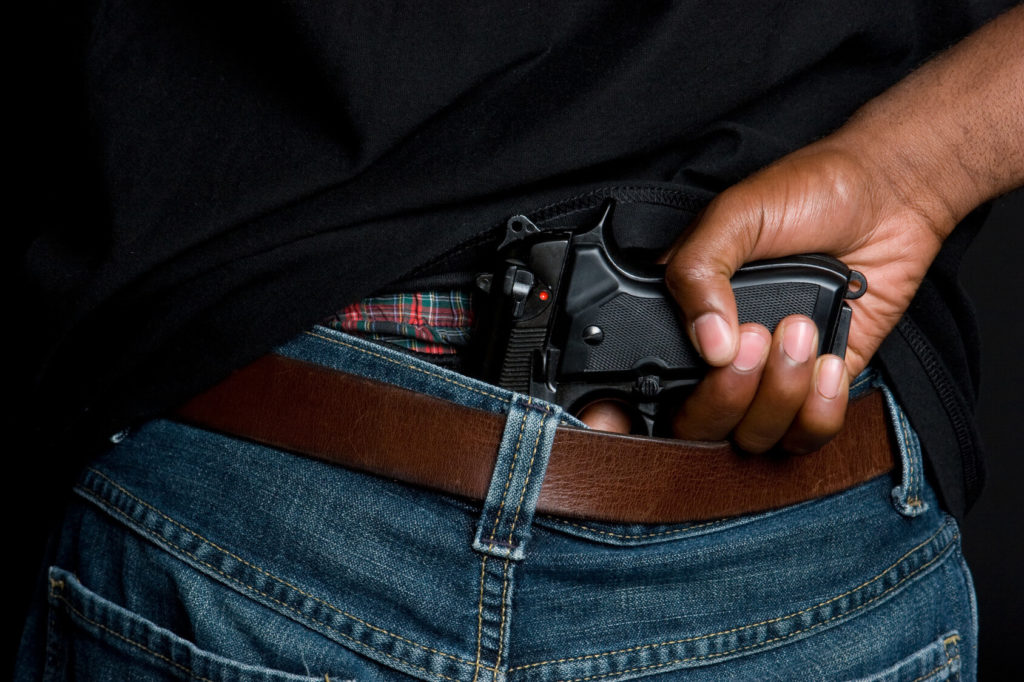
Be Armed and Informed
Texans love their firearms, everyone here’s locked and loaded. After all, this is cowboy country. However, Texas has fairly strict laws governing firearms. Federal firearm laws are even more restrictive. It’s relatively easy to get charged with firearms violations under Texas and federal law. The penalties can be steep. Hence, Texans must not only be armed, but they must also be informed. Ignorance of applicable Texas firearms laws can cause life-changing consequences. When that happens, we stand ready to help you navigate the criminal justice system.
What Age Must A Person Be To Purchase A Firearm?
The first thing to remember about firearms laws is there are two sources: federal and Texas law. Both sources bind Texans. Federal law supersedes state law regarding if there’s a conflict. NOTE: This page is dedicated mostly to Texas firearm laws, but nothing here is intended to be legal advice. The accuracy of this information isn’t guaranteed.
Meanwhile, federal law requires that a person be 21 years of age or older before they may purchase a handgun or 18 for the purchase of a long gun. No state law exception applies.
Texas law is a bit different. Under Texas law, a person who is age 18 may purchase a handgun or long gun in a private sale. Specifically, Texas Penal Code § 46.06(a)(2) makes it a crime if a person “intentionally or knowingly sells, rents, leases, or gives or offers to sell, rent, lease, or give to any child younger than 18 years any firearm, club, or illegal knife.” Texas law has an exception. A person may sell or transfer a firearm to a minor with his parent’s written consent.
What Age Must A Person Be To Possess A Firearm?
Federal law. Under federal law, a person must be at least 18 years of age to possess a handgun or ammunition for a handgun. See 18 U.S.C. § 922(x)(2). Unlike the law on purchasing a long gun, there is no federal age requirement for the possession of a rifle or shotgun.
Texas law. There is no Texas law directly specifying that persons under a certain age are prohibited from possessing a firearm. However, Texas law does specify that persons under 17 may possess a firearm under the following conditions:
- For supervised hunting or sporting purposes. Tex. Penal Code § 46.13(c)(1).
- Self-defense. Tex. Penal Code § 46.13(c)(2).
- Ranching or farming. Tex. Penal Code § 46.13(c)(4).
What transactions require background checks?
A background check is required before every sale or other transfer of a firearm from an FFL to a non-licensee unless an exception is provided under the law. For every transaction that requires a background check, the purchaser/transferee must also complete A.T.F. Form 4473. This includes:
- The sale or trade of a firearm;
- The return of a consigned firearm;
- The redemption of a pawned firearm;
- The loan or rental of a firearm for use off of an FFL’s licensed premises;
- Any other non-exempt transfer of a firearm.
- NOTE: Private sales don’t require background checks.
What transactions DO NOT require background checks?
A background check is not required under these following circumstances:
- The sale or transfer of a firearm where the transferee presents a valid state permit/license that allows the transferee to carry a firearm (for example, a Texas L.T.C.) from the state where the FFL is located and the state permit/license is recognized by the A.T.F. as a qualifying alternative to the background check requirement;
- Transferring a firearm from one FFL to another FFL;
- The return of a repaired firearm to the person from whom it was received;
- The sale of a firearm to a law enforcement agency or a law enforcement officer for official duties if the transaction meets the specific requirements of 27 C.F.R. § 478.134 including providing a signed certification from a person in authority on agency letterhead stating that the officer will use the firearm in official duties and where a records check reveals the officer has no misdemeanor convictions for domestic violence;
- Transferring a replacement firearm of the same kind and type to the person from whom a firearm was received;
- Transferring a firearm subject to the National Firearms Act if the transfer was pre-approved by the A.T.F.
- Private sales
Where Can I Take My Firearm
If you have a L.T.C., you cannot take your “concealed firearm” anyplace you see a 30.06 notice. This notice informs L.T.C. license holders the owner doesn’t want them bringing a concealed firearm on his property. A 30.07 notice prohibits L.T.C. license holders from “openly carrying their firearms” on such property. Even if the firearm owner doesn’t see the sign, he still can be charged for carrying his firearm on such property.
Using Your Firearm For Self Defense
Texas law permits the use of deadly force with a firearm to defend oneself, one’s property, one’s business, and even the person and property of others under a limited set of circumstances. Principally, using deadly force is likely justified when a person has a reasonable belief that the force was immediately necessary to prevent the use of unlawful deadly force or violent felonies upon himself, family, and sometimes, his neighbors. The right to use deadly force is no higher than in one’s own’s home.
The English Jurist, Sir Edward Coke, opined in a famous court ruling “…that the house of everyone is to him as his Castle and Fortress as well for defense against injury and violence. Texas law takes Coke’s words very seriously, and it dramatically favors the self-defense doctrine. Texas legislators believe a man’s castle is his home.
We handle firearm violations.
Call us today if you need a law firm to represent you for a firearms violation. We’ve represented many people facing such charges.